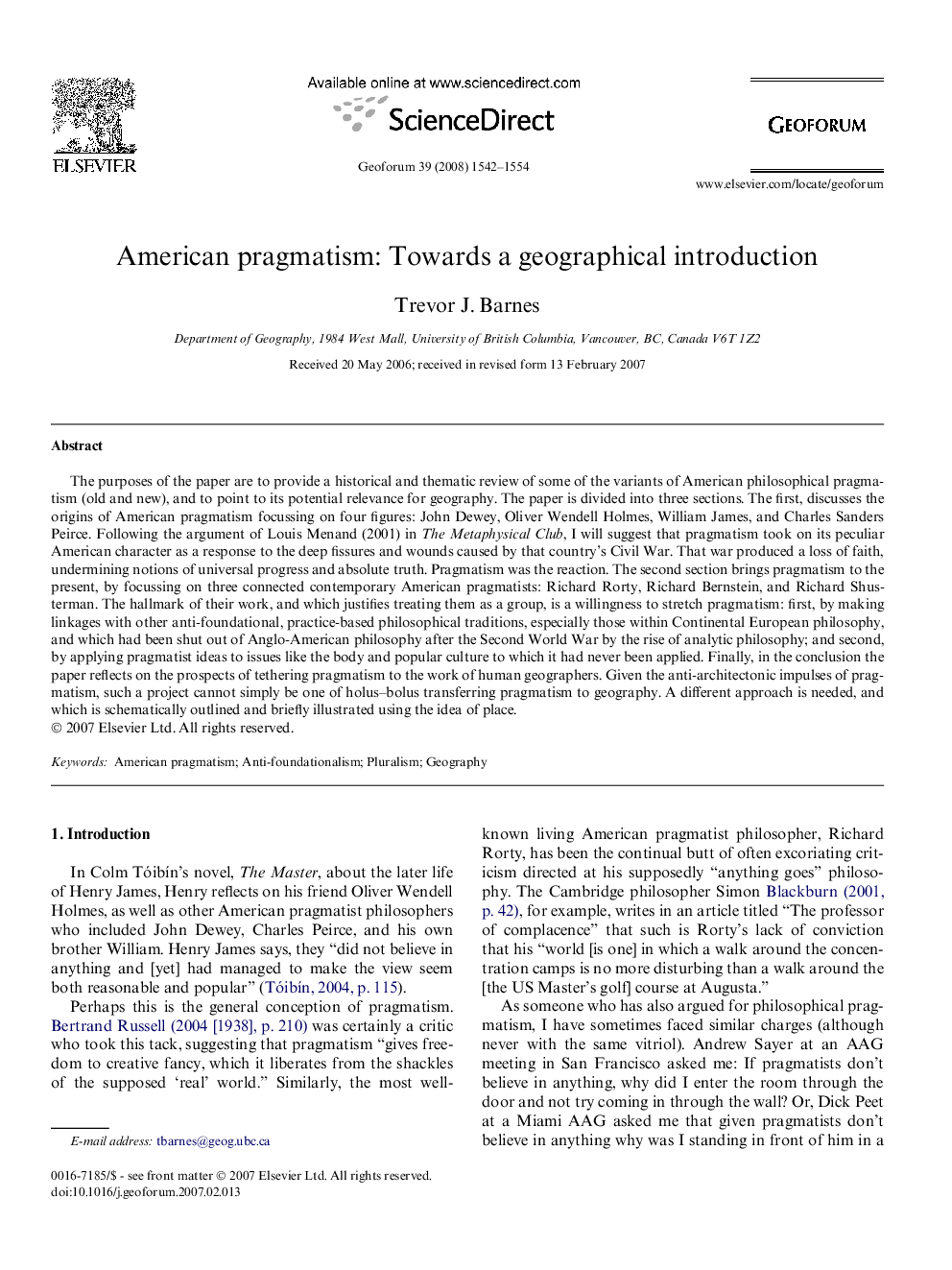| Article ID | Journal | Published Year | Pages | File Type |
|---|---|---|---|---|
| 5074920 | Geoforum | 2008 | 13 Pages |
The purposes of the paper are to provide a historical and thematic review of some of the variants of American philosophical pragmatism (old and new), and to point to its potential relevance for geography. The paper is divided into three sections. The first, discusses the origins of American pragmatism focussing on four figures: John Dewey, Oliver Wendell Holmes, William James, and Charles Sanders Peirce. Following the argument of Louis Menand (2001) in The Metaphysical Club, I will suggest that pragmatism took on its peculiar American character as a response to the deep fissures and wounds caused by that country's Civil War. That war produced a loss of faith, undermining notions of universal progress and absolute truth. Pragmatism was the reaction. The second section brings pragmatism to the present, by focussing on three connected contemporary American pragmatists: Richard Rorty, Richard Bernstein, and Richard Shusterman. The hallmark of their work, and which justifies treating them as a group, is a willingness to stretch pragmatism: first, by making linkages with other anti-foundational, practice-based philosophical traditions, especially those within Continental European philosophy, and which had been shut out of Anglo-American philosophy after the Second World War by the rise of analytic philosophy; and second, by applying pragmatist ideas to issues like the body and popular culture to which it had never been applied. Finally, in the conclusion the paper reflects on the prospects of tethering pragmatism to the work of human geographers. Given the anti-architectonic impulses of pragmatism, such a project cannot simply be one of holus-bolus transferring pragmatism to geography. A different approach is needed, and which is schematically outlined and briefly illustrated using the idea of place.
